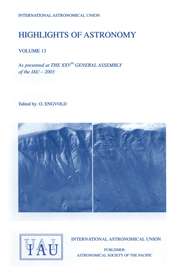Article contents
The Astronomy and Cosmology of Copernicus
Published online by Cambridge University Press: 30 March 2016
Extract
It was close to the northernmost coast of Europe, in the city of Toruń, that the King of Poland and the Teutonic Knights signed and sealed the peace of 1466, which made West Prussia part of Polish territory. And it was in that city, just seven years later and precisely 500 years ago, in 1473, that Nicholas Copernicus was born. We know relatively few biographical facts about Copernicus and virtually nothing of his childhood. He grew up far from the centers of Renaissance innovation, in a world still largely dominated by medieval patterns of thought. But Copernicus and his contemporaries lived in an age of exploration and of change, and in their lifetimes they put together a renewed picture of astronomy and geography, of mathematics and perspective, of anatomy, and of theology.
When Copernicus was ten years old, his father died, but fortunately his maternal uncle stepped into the breach. Uncle Lucas Watzenrode was then pursuing a successful career in ecclesiastical politics and in 1489 he became Bishop of Varmia. Thus Uncle Lucas could easily send Copernicus and his younger brother to the old and distinguished University of Krakow. The Collegium Maius was then richly and unusually endowed with specialists in mathematics and astronomy; Hartmann Schedel, in his Nuremberg Chronicle of 1493, remarked that “Next to St. Anne’s church stands a university, which boasts many eminent and learned men, and where numerous arts are taught; the study of astronomy stands highest there. In all Germany there is no university more renowned in this, as I know from many reports.” At the university the young Nicholas embraced the study of astronomy with a passion found only in the most exceptional of undergraduates. There he learned about the works of Sacrobosco, Regiomontanus, Ptolemy, and Euclid.
Information
- Type
- Invited Discourses
- Information
- Copyright
- Copyright © Reidel 1974
- 1
- Cited by

